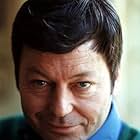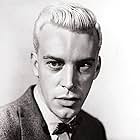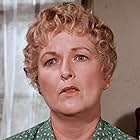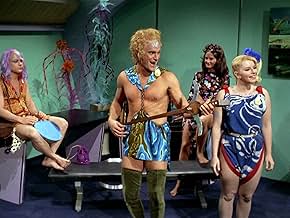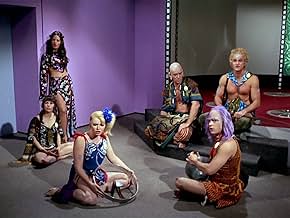The Way to Eden
- Episode aired Feb 21, 1969
- TV-PG
- 51m
IMDb RATING
5.4/10
3.6K
YOUR RATING
A group of idealistic hippies, led by an irrational leader, come aboard the U.S.S. Enterprise.A group of idealistic hippies, led by an irrational leader, come aboard the U.S.S. Enterprise.A group of idealistic hippies, led by an irrational leader, come aboard the U.S.S. Enterprise.
Mary Linda Rapelye
- Irina
- (as Mary-Linda Rapelye)
Bill Blackburn
- Lieutenant Hadley
- (uncredited)
Frank da Vinci
- Lt. Brent
- (uncredited)
James Drake
- Sick-Bay Intern
- (uncredited)
Roger Holloway
- Lt. Lemli
- (uncredited)
Featured review
I agree with other reviewers that this is a poor example of original Star Trek, but for different reasons. It's quite clear that the scriptwriters or producers were hostile to the youth culture movement of the day. The ridiculous way the space hippie tribe is depicted make them little more than a caricature. Worse, they are shown exhibiting all the behaviour of cult members. This is hardly what the hippie movement was about. Most were just looking for a way to reconnect with the planet. Here they are shown as delusional and even dangerous, which of course is the way authorities saw them in the '60s.
Fortunately the scriptwriters make Spock an excellent foil to this all-out hostility toward anyone who questions authority. (Was that Roddenberry's contribution?) If there's a redeeming quality to this episode, it's Nimoy's performance. That the most logical mind in the universe could fully understand the urge to find a way to create a better society proves it's hardly a delusional concept. How else does the human species progress, but by striving for better? Ignore the snarls of the social Darwinists. They just want excuses for their bad behaviour.
In reality there were many complex social factors that created the ferment that was the 1960s —a protracted, bloody war; a suddenly booming economy; higher education for the masses for the first time in history; an incredible explosion of creative genius in most of the arts; racial tensions; emerging gender equality, etc. etc. etc. To oversimplify the stated aims or visions of such a generation is to do them a grave injustice. To depict them as foolish, deluded children is just plain ignorant.
After all, Roddenberry pushed the envelope from the very start of Star Trek. That was hardly establishment thinking. In his own modest way he was as much a part of the social changes sweeping society as any of the other change agents. For a start, he showed women as capable, professional, highly competent and intelligent—besides being sexy. Just look at what else was being made in television and film at the same time and see how many shows you can say that about. I mean, besides Rod Serling and The Twilight Zone.
So as songwriter Nick Lowe once said, "What's so funny about peace, love and understanding?" Is it attainable? Who knows? Probably not. Does that mean we stop trying? "A man's reach must exceed his grasp or what's a heaven for," the poet Browning reminds us. Which is precisely what Roddenberry's Star Trek was all about. Reaching further. Either Roddenberry stumbled on this one, or Heineman had a bad hair day. Or the producers just didn't get it.
Fortunately the scriptwriters make Spock an excellent foil to this all-out hostility toward anyone who questions authority. (Was that Roddenberry's contribution?) If there's a redeeming quality to this episode, it's Nimoy's performance. That the most logical mind in the universe could fully understand the urge to find a way to create a better society proves it's hardly a delusional concept. How else does the human species progress, but by striving for better? Ignore the snarls of the social Darwinists. They just want excuses for their bad behaviour.
In reality there were many complex social factors that created the ferment that was the 1960s —a protracted, bloody war; a suddenly booming economy; higher education for the masses for the first time in history; an incredible explosion of creative genius in most of the arts; racial tensions; emerging gender equality, etc. etc. etc. To oversimplify the stated aims or visions of such a generation is to do them a grave injustice. To depict them as foolish, deluded children is just plain ignorant.
After all, Roddenberry pushed the envelope from the very start of Star Trek. That was hardly establishment thinking. In his own modest way he was as much a part of the social changes sweeping society as any of the other change agents. For a start, he showed women as capable, professional, highly competent and intelligent—besides being sexy. Just look at what else was being made in television and film at the same time and see how many shows you can say that about. I mean, besides Rod Serling and The Twilight Zone.
So as songwriter Nick Lowe once said, "What's so funny about peace, love and understanding?" Is it attainable? Who knows? Probably not. Does that mean we stop trying? "A man's reach must exceed his grasp or what's a heaven for," the poet Browning reminds us. Which is precisely what Roddenberry's Star Trek was all about. Reaching further. Either Roddenberry stumbled on this one, or Heineman had a bad hair day. Or the producers just didn't get it.
- ajoyce-222-935612
- Feb 23, 2013
- Permalink
Storyline
Did you know
- TriviaFor the scene in which Spock plays his Vulcan harp for Adam (the last time he plays the instrument on the series), the background music for Uhura's song from Charlie X (1966) is recycled.
- GoofsTwo times, a shot of Kirk is reversed (presumably to make him face the right side of the screen) The first time he is facing Sulu in a corridor of the Enterprise, the second he is looking where Dr. Sevrin had just run on the planet Eden. Note the appearance of the Star Fleet emblem on the right side of his shirt, rather than the usual left side.
- Alternate versionsSpecial Enhanced version Digitally Remastered with new exterior shots and remade opening theme song
- ConnectionsEdited from Star Trek: Spock's Brain (1968)
- SoundtracksHey, Out There!
Written by Charles Napier and Craig Robertson
Lyrics by Arthur Heinemann
Performed by Charles Napier and Deborah Downey
Details
- Release date
- Country of origin
- Official sites
- Languages
- Filming locations
- Production companies
- See more company credits at IMDbPro
Contribute to this page
Suggest an edit or add missing content




